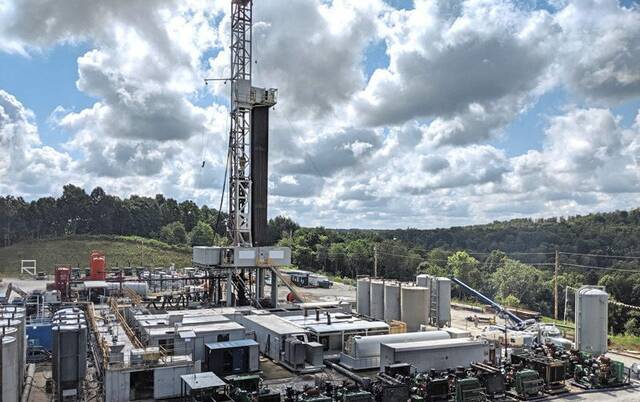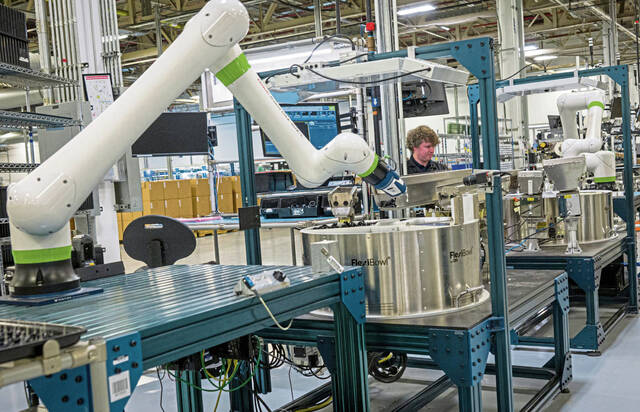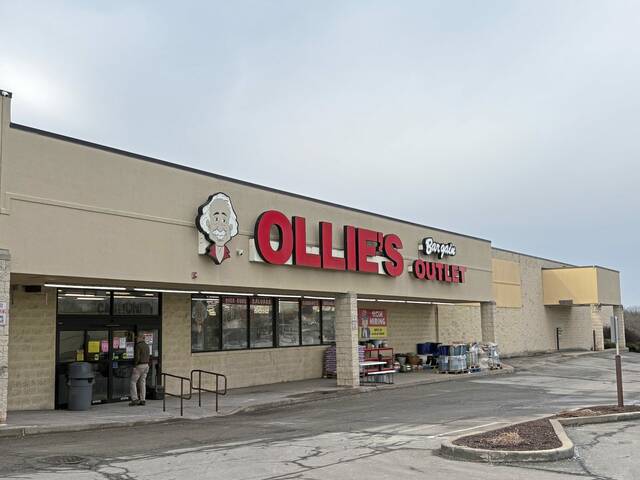The head of one of Pennsylvania’s largest natural gas producers had sharp words Tuesday regarding state impact fees and claimed the industry has been “villified” by opponents.
Nick DeIuliis, chief executive of CNX Resources Corp. of Cecil, called for a revamp of the impact fee levied on natural gas producers, which have pumped more than $2 billion into the coffers of state and local governments since 2012.
“We’ve (natural gas producers) paid more than our fair share” over the past nine years under Act 13, a formula used to determine the levy, DeIuliis said Tuesday during a speech to industry representatives at the David L. Lawrence Convention Center in Pittsburgh. No other energy sector pays an equivalent impact fee to the state, DeIuliis said.
“It’s time for a refresher,” DeIuliis said to more than 200 representatives at the DUG East and Marcellus-Utica Midstream Conference.
The formula for levying the annual impact fees, primarily on the operators of unconventional gas wells, is determined by a multiyear fee schedule based on the average natural gas price. The fees can be adjusted to reflect increases in the Consumer Price Index if the total number of unconventional wells spud in a given year exceeds the number the previous year, according to the Pennsylvania Public Utility Commission.
DeIuliis said after his speech that he did not have a specific formula in mind, but it should be one in which the gas industry production can increase, while raising more money for those benefiting from the fee.
The Pennsylvania Public Utility Commission said the state has collected more than $2 billion since Act 13 was enacted in February 2012. For production in 2020, the state collected $146.2 million from the impact fee, which was down from $251 million in 2018. About $71 million of the 2020 collection was distributed to county and local governments, while the state took $23.7 million to cover the impact on state agencies of drilling activities. Local governments can spend the money on infrastructure projects, water and stormwater projects, emergency preparedness and public safety and environmental programs, including trails.
Gov. Tom Wolf has sought to have the General Assembly approve a severance tax, but the Republican-controlled Legislature repeatedly has rebuffed his attempts. State Rep. Darryl Metcalfe, R-Butler, who heads the state House Environmental Resources and Energy Committee, could not be reached for comment.
While saying that the natural gas industry has been demonized by opponents who “want you (gas industry) killed off,” DeIuliis characterized the renewable energy sector — wind and solar — as a “make-believe energy,” which has been embraced by some political leaders and environmentalists.
Renewable energy accounts for about 12% of the nation’s energy consumption, according to the U.S. Energy Information Administration.
Multinational corporations take advantage of tax subsidies to produce renewable energy sources, DeIuliis said. The fallacy is that those renewable energy projects, like the windmills seen along the Allegheny Ridge along Route 22 in Cambria County and off the Pennsylvania Turnpike in Somerset County, have no carbon footprint, he said.
DeIuliis countered there is a significant carbon footprint in the production of the wind mills — mining minerals in China, assembling the blades and turbines, shipping products across the ocean, clearing forests for the windmills and installing electrical lines to the sites to transport the power to the grid.
“Clean energy sources like wind and solar are critical parts of reducing greenhouse gas emissions and combating climate change,” said Jason Ryan, a spokesman for the American Clean Power Association, a trade group based in Washington, D.C.
While DeIuliis pointed out the subsidies received by renewable energy companies, all energy sources receive incentives in some way through tax credits, loan programs, insurance guarantees or other means, the Clean Power Association said. Historically, clean energy has received a fraction of these incentives.








